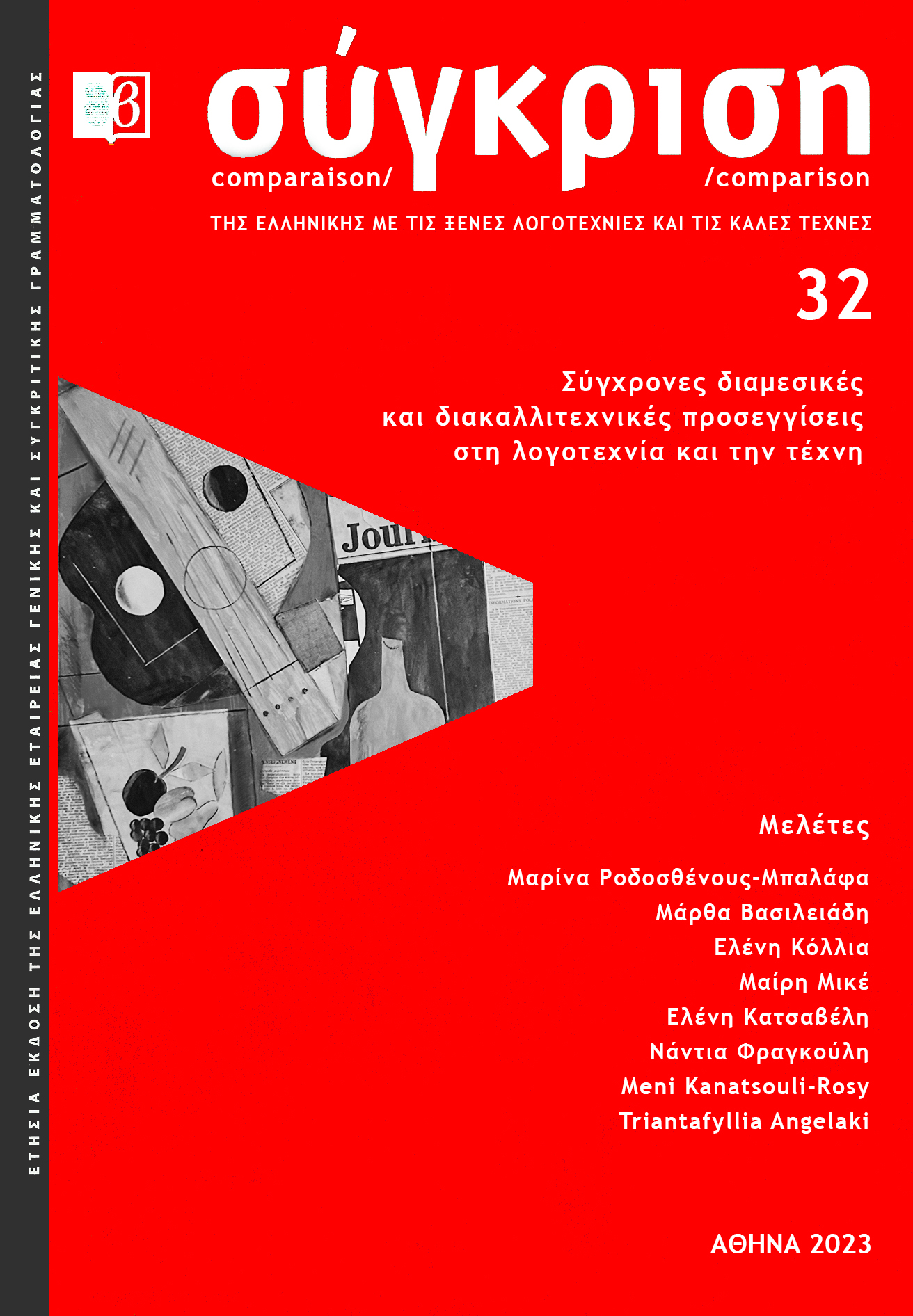Στη σκηνή του εγκλήματος: Ιουδήθ και Ολοφέρνης
Abstract
Le mythe de Judith et Holopherne dans la littérature néohellénique
Depuis le récit faussement historique de la Bible qui met en scène la décapitation d’Holopherne par Judith et célèbre le triomphe du peuple juif, le mythe de la belle guerrière fait naître, à travers les siècles, une littérature et une production artistique d’une extraordinaire richesse. Or, dans le monde néohellénique, Judith, plutôt séductrice froide que héroïne vertueuse, apparaît sporadiquement dans des récits poétiques du début du XX siècle (Pl. Rodokanakis, Const. Manos, N. Kazantzakis) qui misent surtout sur la féconde dualité du personnage. Explorant le destin littéraire grec de Judith, on s’interroge sur les multiples facettes du fantasme du féminin et de la généalogie du désir.
Article Details
- How to Cite
-
Βασιλειάδη Μ. (2023). Στη σκηνή του εγκλήματος: Ιουδήθ και Ολοφέρνης. Comparison, 32, 250–270. Retrieved from https://ejournals.epublishing.ekt.gr/index.php/sygkrisi/article/view/35242
- Issue
- Vol. 32 (2023)
- Section
- Articles

This work is licensed under a Creative Commons Attribution-NonCommercial-ShareAlike 4.0 International License.
Authors who publish with this journal agree to the following terms:
- Authors retain copyright and grant the journal right of first publication with the work simultaneously licensed under a Creative Commons Attribution Non-Commercial License that allows others to share the work with an acknowledgement of the work's authorship and initial publication in this journal.
- Authors are able to enter into separate, additional contractual arrangements for the non-exclusive distribution of the journal's published version of the work (e.g. post it to an institutional repository or publish it in a book), with an acknowledgement of its initial publication in this journal.
- Authors are permitted and encouraged to post their work online (preferably in institutional repositories or on their website) prior to and during the submission process, as it can lead to productive exchanges, as well as earlier and greater citation of published work (See The Effect of Open Access).



